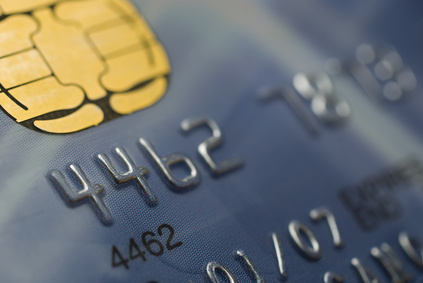In the current recession many of us are asking ourselves this question. Many more of us are afraid to ask the question and simply adopt the ostrich solution – stick our heads in the sand.

The truth is that doing nothing is no solution. If we cannot pay our credit card bills then chances are that there are other bills not being paid either: mortgage, rent, utilities, car HP, loans, overdrafts and so on. However, let’s assume that all other bills are being paid and that only payments of credit card bills are falling behind. Let’s assume we have a number of credit cards, each with a fairly generous spending limit and that the cards are at various stages of being maxxed out and you are unable to keep up with the monthly debt repayments.
There are various courses of action (or, if you like, inaction) that people may adopt. Here are a few of them. Some of them have some merit and others are positively fraudulent.
- Make no payments on any of the credit cards.
- Make minimum payments on some of them.
- Cut up the cards and stop using them.
- Obtain loans (at lower rates of interest than the cards) and with the proceeds pay off the credit cards.
- Obtain a new card (or cards) on a balance transfer/zero interest basis.
- Max out all the cards and then petition for bankruptcy.
- Re-mortgage a property releasing equity and clear some or all of the credit card debts.
- Contact an insolvency practitioner and seek a financial solution
Let’s look at the consequences of some of these actions (inactions):
1. If a credit card bill is not re-paid at all then the debt increases as the card provider adds penalties and interest on a monthly basis. The credit facility will be withdrawn in due course and the creditor will take steps to recover the debt by presenting a statutory demand for re-payment, obtaining a CCJ, petitioning for bankruptcy or other recovery action.
2. If only minimum repayments are made then the debt can still continue to grow even if spending ceases on the card. Ultimately making only minimum repayments can lead to the creditor taking recovery action similar to the situation when payments cease completely.
3. An excellent first step. At least the bleeding will stop. However until we settle the credit card bills, interest and penalties will continue to be applied by the creditors. Cutting up credit cards can provide a temporary respite but it doesn’t tackle the problem of being unable to re-pay the debt. It just postpones the evil day, so to speak.
4. Obtaining a low (or lower) interest loan can be a partial solution, provided we have sufficient disposable income to service the loan and we stop using the credit cards altogether.
5. Again this is just a temporary respite. Even if we can obtain such a card, the debt still has to be paid off and after the interest free period, interest rates and penalties on the new card can be higher than before. Currently, creditors are being more restrictive in the issuing of such cards.
6. Definitely a no-no. To borrow money – which is what using a credit card is – with no intention of repaying the debt is fraudulent and could lead to criminal prosecution.
7. This could be a solution or partial solution. However, there needs to be equity in the property to start with. Even if there is equity in the property, a lender may limit the amount at which it will provide a re-mortgage to say 85% or less of the current property value. Because property values have reduced sharply in the last few years, the amount of realisable equity may have reduced sharply. It may be that no provider will offer a re-mortgage at all. Even if they do, the interest rates may be unattractive and there may be additional costs to bear, such as the cost of obtaining a valuation. The existing mortgage may also be subject to an early re-payment penalty, if moving from the current mortgage provider and the term of such a penalty has not yet elapsed.
8. If you are concerned as to what will happen to you then consulting with an IP is the best initial course of action. A reputable IP will look at all of your financial circumstances (and not just your credit card bills) and will advise you on all of the options open to you. You should incur no costs in obtaining this advice. Options include entering into an Individual Voluntary Arrangement (IVA), engaging in a Debt Management Plan (DMP) or even petitioning for your own Bankruptcy (BCY). There may be other options available as well. You can choose the best option for yourself and you will have more control over your financial future than you would if you default on your credit card bills and do nothing or choose an inappropriate course of action. Ultimately, you decide what will happen to you.